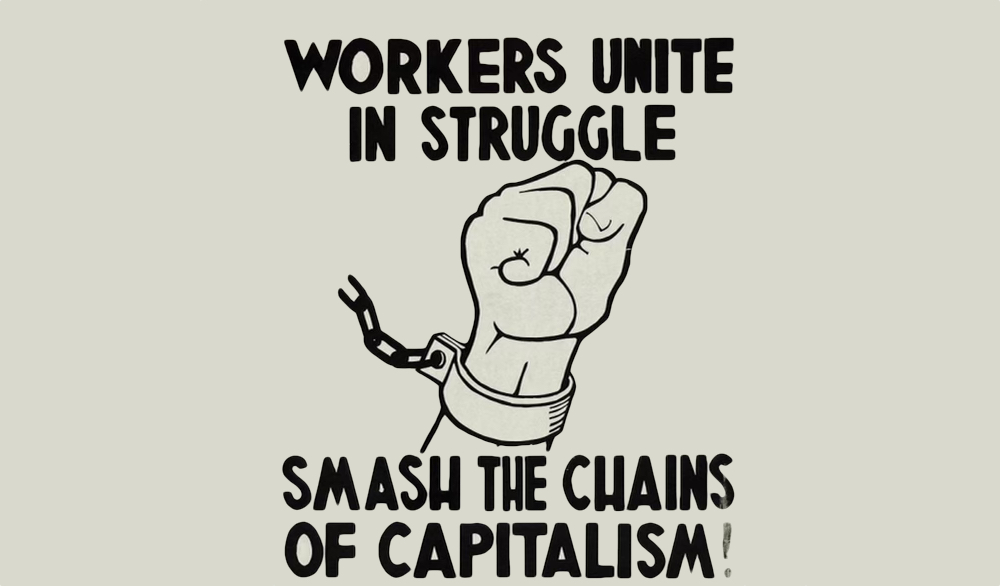
On Democratic Socialism
Within the vast ocean of capitalism, it appears that the “mainstream left” is swimming with the current, abandoning class consciousness, class analysis and revolutionary ideology. The vast array of today’s “leftist” intellectuals embrace the teachings of Bernstein and Bakunin rather than Engels and Lenin. Just as in the past, once again, these proponents of social evolution constitute nothing short of a band of pied pipers leading the working masses down a capitalist rabbit hole.
Take for example, Richard Wolff, considered the leading Marxist economist in the U.S., who argues that a successful alternative to capitalism already exists. He calls for workers’ cooperatives to be the anti-capitalist models that will gradually destroy capitalism in his 2012 book titled “Democracy at Work: a Cure for Capitalism”. “Economic Update” is Richard Wolff’s weekly report on YouTube and Podcast, platforms that promote this type of “democratic socialism” with approximately 300,000 subscribers. His so-called teachings started with one Pacifica station in 2011 and is now played on more than 120 radio stations in the U.S. Interestingly enough, Francisco Franco, who viciously suppressed any hint of a workers’ movement or unions, strongly supported workers’ cooperatives too, as did Mussolini. Perhaps this should serve as food for thought for Professor Wolff. But it doesn’t. It seems that he and his supporters are wearing ironclad blinders as they applaud the workers who are being diverted from organizing against the capitalist system and instead are being absorbed into the middle class alongside the petite bourgeois mindset that accompanies it.
Richard Wolff visited the Mondragón Corporation (MCC) based in Spain which is the largest workers’ co–op in the world. As of 2019, it employed over 80,000 people with 86 subsidiaries in 17 countries. According to Wolff, “MC seems a welcome oasis in a capitalist desert.” My response to this is that this particular oasis is merely a mirage. There is no argument that workers’ control of production is central to socialism and we have Karl Marx in his “Inaugural Address to the International Working Men’s Association” of 1864, describing the cooperative movement as a valuable great social experiment: “The value of these great social experiments cannot be overrated.” However, he adamantly rejected the idea that socialism could be established by it: “At the same time the experience of the period from 1848 to 1864 has proved beyond doubt that, however excellent in principle and however useful in practice, co-operative labor, if kept within the narrow circle of the casual efforts of private workmen, will never be able to arrest the growth in geometrical progression of monopoly, to free the masses, nor even to perceptibly lighten the burden of their miseries. It is perhaps for this very reason that plausible noblemen, philanthropic middle-class spouters, and even keep political economists have all at once turned nauseously complimentary to the very co-operative labor system…”
Nonetheless, at the end of the 19th century Eduard Bernstein, the infamous German reformist, advocated for workers co-ops as a strategy for socialism to be established much like Wolff has been for more than a decade. In response, Rosa Luxembourg stated in her pamphlet titled Reform or Revolution: “Co-operatives, especially co-operatives in the field of production, constitute a hybrid form in the midst of capitalism. They can be described as small units of socialized production within capitalist exchange…The problem is that cooperatives that are established in the context of the capitalist market must compete in order to survive, and if the rate of exploitation is high among your competitors, then you must match it.”
MCC is a case in point. Some of the elite members now well fit within the category of “petty capitalists”. It didn’t start that way when it emerged from the “crushed unions and a near collapse in class struggle” organizing under Franco. Though it originally adhered to its ideal of social equity and democratic decision making amongst all workers, nowadays, working conditions are not noticeably different from being under a capitalist employer with most co-op members lacking any decision making power while 20% of the workforce are on part-time or short-term contracts. Then there are the low paid workers in their operating plants outside of Spain where sweatshop conditions exist, such as in China and Poland. Just as Luxembourg predicted, over time, this type of cooperative has had to accommodate itself to the capitalist market in order to survive.
So I pose this simple question to all the reformist “socialists” who consider class struggle unnecessary and destructive: how can a “democratic” workplace within its extremely limited boundaries, hope to establish socialism when no challenge is posed to the power of the ruling class? No wonder the fascist governments of Spain and Italy loved the concept of workers’ cooperatives. In fact, Mussolini established the National Fascist Cooperative Agency in order to encourage their expansion, and under Franco in the 1960s, MCC was awarded the Gold Medal for Merit in Work.
In the same speech regarding workers’ cooperatives, Karl Marx continued to critique its enthusiastic supporters: “… the lords of capital will always use their political privileges for the defense and perpetuation of their economic monopolies. So far from promoting, they will continue to lay every possible impediment in the way of the emancipation of labor.” In short, workers’ cooperatives are yet another impediment to workers’ struggle to free themselves from the chains of capitalism. The only path for the emancipation of the working class is to break their chains. And this can be achieved only through an organized fight led by a revolutionary vanguard to wrest control from the exploiters who will fight to the death to prevent it from happening, and therefore, so must the exploited fight to the death in order for their emancipation to happen. The only class that refuses to fight to the death is the petite bourgeoisie who like a songbird sings glorious songs of freedom but only on condition that their cage of safety remains intact. This, indeed, is the mindset of Bernstein, Wolff and all of the mini-islands of “worker-owners”.
Rachel
Sources:
Much of the above factual information and quotes were taken from the following two sources:
— International Socialist Review, Issue #93, Are workers’ cooperatives the alternative to capitalism?, 2016.
— Organizing.work, You can’t win without a fight: why workers cooperatives are a bad strategy, 2021.



